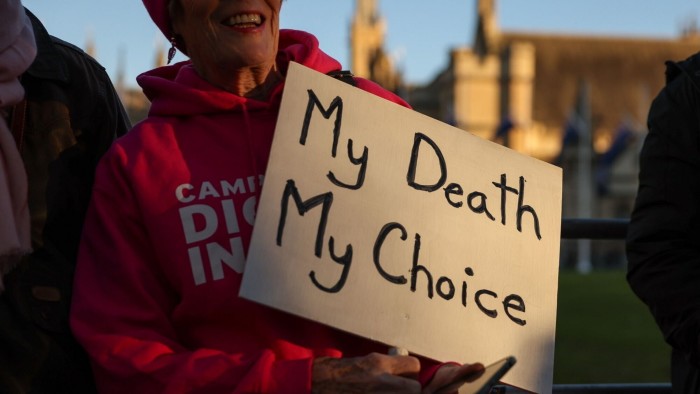Unlock the Editor’s Digest for free
Roula Khalaf, Editor of the FT, selects her favourite stories in this weekly newsletter.
More than 4,500 people a year would seek assistance to end their lives if a controversial law comes into force, according to government estimates.
The proposal to allow terminally ill people in England and Wales to ask for help to end their lives was narrowly passed by MPs last year after an emotionally charged debate. It will become law if MPs back it in a final vote later this month.
The government’s 149-page impact assessment released late on Friday forecast that about 800 people would die in the first year after implementation, rising to as high as 4,559 in the tenth year.
Campaigners against the measure, which has been introduced in other countries, have warned that more people than expected would end up using the service.
The Whitehall assessment, which includes a review of the impact of providing assisted dying services on the NHS, was commissioned by health secretary Wes Streeting.
It forecast that introducing the measure could save the NHS up to £10.3mn initially, rising to as much as £59.6mn in the tenth year as more people use it.
The author of the bill, Labour MP Kim Leadbeater, has conceded that changes to the legislation mean it may not come into force until 2029, even if signed into law this year.
After MPs backed the measure at its Second Reading, the bill was amended to remove the requirement for a High Court judge to sign off on each case. Instead an oversight panel, including a legal figure such as a KC, will consider each case.
MPs were originally told that the legal protection of a judge was key to preventing abuse of the system.
Running these panels and a Voluntary Assisted Dying Commissioner would cost an average of £10.9mn to £13.6mn every year, according to the government’s assessment.
The Department of Health and Social Care said: “The government is neutral on the matter of assisted dying and the passage of the Terminally Ill Adults End of Life Bill.
“Today we have published documents outlining an assessment of the Bill’s impact in order to help parliamentarians in their consideration of the Bill.”




